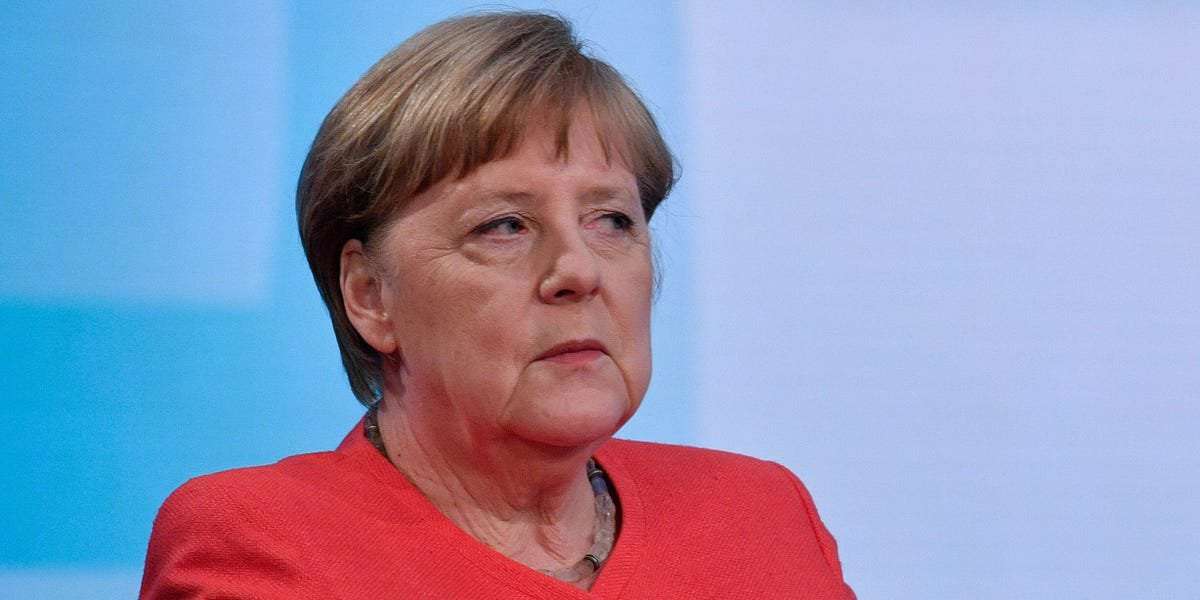Germany's successful response to the first wave of COVID-19 meant it became harder to control the virus later on, the head of its public health agency said Thursday.
Some people even began to doubt the virus' existence, he said, calling it a "prevention paradox."
People aren't taking social distancing guidelines and quarantine seriously enough, and hospitals are reaching breaking point, Lothar Wieler, head of the Robert Koch Institute for Infectious Diseases (RKI), said.
Germany reported 487 new deaths on Tuesday, its highest daily total so far.
Visit Business Insider's homepage for more stories.
Germany dealt with the first wave of COVID-19 so well that people questioned how serious the virus was, and even doubted its existence, the head of its public health agency said Thursday.
Because of the country was "very successful" when the pandemic started, many people aren't taking social distancing guidelines and quarantine seriously enough, Lothar Wieler, head of the Robert Koch Institute for Infectious Diseases (RKI), said at a press conference.
As a result, the country has seen a surge in cases in the fall and winter. Germany reported 487 new deaths on Tuesday, its highest daily total so far.
According to Wieler, some people didn't know anyone who was infected by COVID-19, which made it harder for them to comprehend the scale of the pandemic. Others denied the virus' existence. He called this a "prevention paradox."
France and Belgium have been able to lower their case counts because their citizens comply with preventative rules, Wieler said. The cases in Germany have now reached a plateau, he said, "but they aren't sinking."
Throughout November, the country reported between 11,000 and 23,000 new cases a day. On December 2, Germany registered 22,000 new positive cases, a similar number to the day before.
Hospitals in some regions are reaching full capacity, Wieler said, and cases in retirement homes are climbing.
As of Thursday morning, Germany had reported more than 1.1 million cases of COVID-19, according to RKI data. Among these were 17,602 deaths.
Read more: COVID-19 threatens to create a 'lockdown generation' in Europe: Here's why young people could be the ones paying for yet another crisis
"I am sure that as more cases occur, as people see it among their acquaintances, and more people see how it is a serious illness that they don't want to catch, one with long-term consequences, then I think compliance will improve," Wieler said.
He urged people to follow social distancing and mask guidelines. "We are all responsible for curbing the growth of the virus and protecting the elderly," he said.
On Wednesday, Chancellor Angel Merkel and state leaders agreed to extend COVID-19 restrictions in the country. Restaurants and hotels must remain shut, and private gatherings must be limited to five people from two households until January 10.

DamonHay on December 3rd, 2020 at 18:37 UTC »
It’s raining and you need to leave for work, so you take your umbrella. While walking outside you put your umbrella up so you don’t get wet. When you get to work you’re nice and dry. Do you say “wow, I’m dry, I didn’t need anything to cover me from the rain. There’s no need for this umbrella!” No, you don’t, but that’s fucking stupid.
This is exactly what people who deny the need for COVID prevention sound like. This is exactly what anti-vaxxers sound like.
castiglione_99 on December 3rd, 2020 at 17:51 UTC »
I think that's also how vaccine deniers happened - vaccines worked so well, that people forgot just how horrible things could be before vaccines, so now you have people denying that we even need them.
Sturmhuhn on December 3rd, 2020 at 17:00 UTC »
I mean... yes thats kinda right. We still got more than enough new infections every day. I think its around 20k right now per day in all of germany.